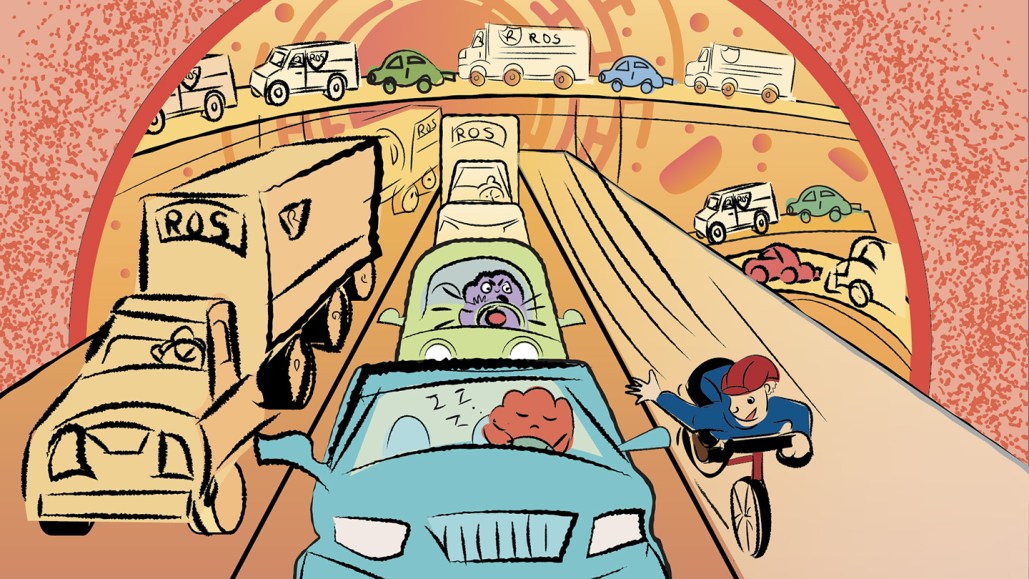Sluggish proteins may underpin aging and chronic disease
“Proteolethargy” is when proteins get stuck in chemical traffic jams instead of zipping around

In response to cellular stress, proteins become ensnared in chemical traffic jams, creating a kind of widespread sluggishness scientists call “proteolethargy.”
Jennifer Cook-Chrysos/Whitehead Institute